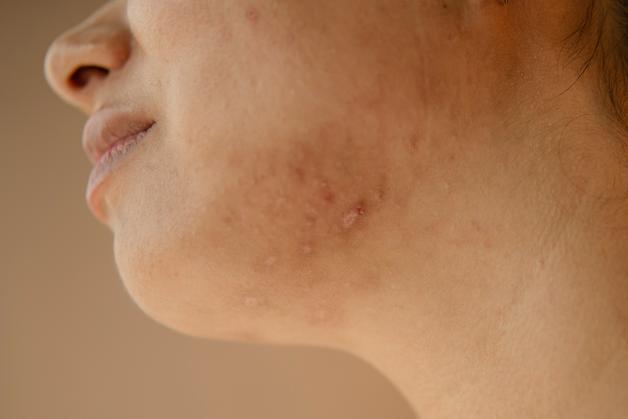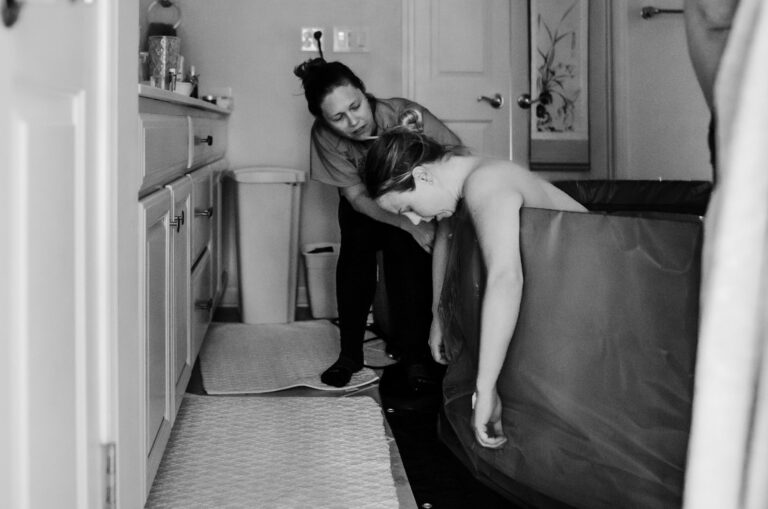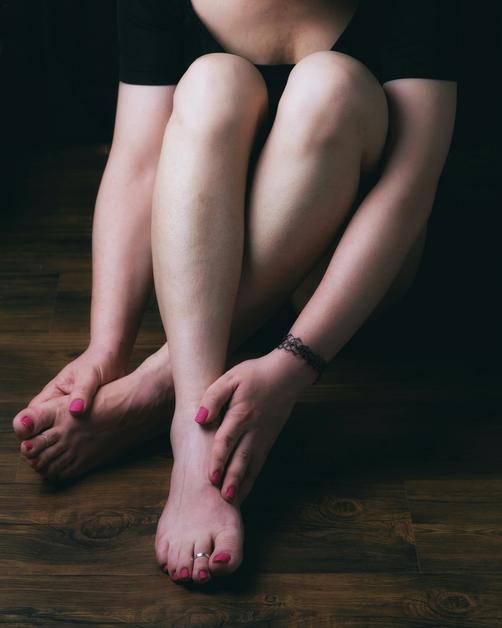Pregnancy eczema, that unpredictable guest, can slip into your pregnancy journey uninvited—dry, angry patches, relentless itching, sometimes where you least expect them. Skin, once supple, now starts feeling tight, perhaps a little rough, and often calls for your attention at the most inconvenient moments, especially when all you crave is restful sleep. Is it merely a fleeting rash, or something tied to the flurry of changes your body is managing? Understanding the root causes, distinct signs, and safest care options for pregnancy eczema can transform worry into empowerment. Let’s unravel how hormonal shifts, immune system tweaks, and external triggers make pregnancy eczema such a unique challenge, discover how you can spot the signs early, and see what effective, gentle care options science recommends. Worries about your baby’s safety, passing on allergies, or the right creams—these are common and natural, and solutions exist. Within the swirl of symptoms and evolving routines, support—medical, practical, and emotional—remains essential.
What Is Pregnancy Eczema and Why Does It Happen?
When someone mentions pregnancy eczema, what precisely is at play? Not just the regular eczema—it’s often called atopic eruption of pregnancy. Here, the skin takes on the burdens of intricate physiological changes. You may notice persistent dryness, patches that burn or itch, or roughness that does not yield to the usual individual remedies. Size or location can fluctuate: for some, the inner elbows are inflamed; for others, the cheeks, scalp, or even the breasts show distress.
What flips the switch? The culprits are multifactorial. Surprising, perhaps, to learn that nearly 60% to 80% of pregnancy eczema cases appear in those with no prior history. The explanation? Hormones—especially estrogen and progesterone—surge, intensifying skin sensitivity and reducing its natural barrier power. The immune system, meanwhile, shifts gears to protect your baby, tilting toward a “Th2-dominant” state. This pivot, meant to create a tolerant environment for the fetus, paradoxically opens the door to increased skin reactivity.
Add to this genetic predisposition and environmental irritants like dust mites, certain foods, and even emotional stress. But it’s rarely a straightforward equation. Sometimes pregnancy eczema swells unexpectedly, or a clear trigger simply cannot be found. And just because it occurred once, no guarantee it’ll be back in your next pregnancy.
How to Spot Pregnancy Eczema: Patterns and Red Flags
Classic signs of pregnancy eczema blend with pregnancy’s own rhythms, sometimes coming and going in mysterious cycles. The hallmarks often include:
- Intense, persistent itching (pruritus) that might peak at night
- Red patches—sometimes bumpy, occasionally lustrous or scaly
- Abnormal skin texture, peeling, or stinging
- Areas most prone: inner elbows, backs of knees, face, scalp, arms, legs, hands, feet, even breasts and that rapidly stretching abdomen
Symptoms can erupt suddenly, escalate quickly, or remain a low, smouldering nuisance. Certain signs, however, need special attention: unexplained itching on your palms or abdomen with no visible rashes might point to a liver issue known as intrahepatic cholestasis of pregnancy. Sudden, severe outbreaks—blisters, oozing, excessive pain—could mean a more rare skin disorder or infection, where prompt medical advice is non-negotiable.
Causes and Unique Triggers During Pregnancy
Why does pregnancy eczema favor expectant parents? Hormones, first and foremost, change the way your skin functions. Elevated estrogen and progesterone disrupt the hydration and resilience of your skin barrier, turning everyday exposures, previously harmless, into provocations for new flares. Your immune system, ever adaptive, now fine-tunes itself in favor of the fetus, but the price is often paid in increased susceptibility to skin reactions.
Environmental triggers often play side roles here:
- Contact with allergens (think house dust, pollens, certain foods, perfumes in cosmetics)
- Use of synthetic or tight-fitting clothes, or detergents with strong fragrance
- Exposure to heat, humidity, or airborne chemicals
- Life stress—sometimes barely noticeable—can act as a silent accelerant
A family history of atopic diseases increases the odds, but genetics offers no certainties.
What About the Baby?
A natural question—does pregnancy eczema endanger the baby? For most mild to moderate cases, absolutely not. The risk is almost entirely on the parent’s comfort and sleep. Itching that leads to scratching and broken skin does increase infection risk (bacteria can seize such opportunities), but with attentive care, risk can be controlled.
Extremely severe eczema, if left unchecked, could open the door to rare but troublesome viral infections or widespread skin breakdown. When faced with rapidly worsening rashes, high fever, or open wounds, direct consultation with a dermatologist or obstetrician is a wise step.
Inheritance? Children born to parents with atopic eczema do have statistically higher chances of being sensitive themselves—but genetics is anything but certain, and environmental factors also play a considerable role.
When and Why to Seek Medical Help
You might ask—when does pregnancy eczema warrant a timely medical check? Indications include:
- Persistent or spreading lesions despite gentle home care
- Signs of infection, like redness, oozing, or painful cracks
- Intense itching on palms, soles, or abdomen without visible rash
- Sudden new blisters or hive-like eruptions
Doctors can usually recognize pregnancy eczema from a clinical examination, but in some instances, they may run blood tests to rule out liver or bacterial concerns. Timely diagnosis not only brings relief but also helps adjust care routines for both safety and efficacy.
Everyday Prevention: Gentle, Proactive Habits
Prevention of pregnancy eczema revolves around supportive, protective routines:
- Prefer lukewarm, brief showers; avoid hot water and harsh soaps—choose fragrance-free, syndet cleansers or gentle oils
- Moisturize immediately post-bath, morning and evening, using hypoallergenic emollient creams
- Select loose, airy cotton or linen outfits, keeping synthetic and rough textures at bay
- Use mild, scent-free laundry detergents; minimize use of aggressive cosmetics or household cleaners
- Practice stress management—prenatal yoga, mindfulness, or simply quiet stretches may offer unexpected comfort
- Stay hydrated; keep diet colourful and balanced, favoring foods rich in vitamins and healthy fats
These habits are not fanciful recommendations—studies show reduced frequency and intensity of eczema flares when such measures become routine.
Safe Care and Treatment Options: What Works, What to Avoid
Navigating the options for pregnancy eczema? The aim: maximum relief, minimum risk.
- Emollient creams remain your go-to, locking in moisture, calming itching, and reconstructing that compromised skin barrier
- Mild to moderate topical corticosteroids, like 1% hydrocortisone, are generally safe for short-term, targeted use—never on large areas or under wraps, and preferably under supervision
- Cold compresses can provide immediate relief for angry, hot patches
- Calcineurin inhibitors (for example, tacrolimus) sometimes help stubborn localised spots—always handled by a specialist
- For the occasional severe case, narrowband UVB phototherapy is a reasonable option, though only under strict dermatological care
Steer far from oral retinoids, methotrexate, or certain systemic immunosuppressives—these are out of bounds during pregnancy. Even well-meaning herbal remedies can introduce unknowns; always discuss them with your doctor. Infections—crusting, oozing, spreading redness—require swift medical advice and perhaps an antibiotic solution.
Practical tweaks—humidifiers to combat dry indoor air, clipped nails to prevent accidental scratching, and sticking with established, skin-friendly routines—bolster your comfort.
Breastfeeding and Pregnancy Eczema: Ensuring Safety and Comfort
Does pregnancy eczema complicate breastfeeding? Not usually—though cracked, irritated nipples may sting or bleed, making feeds tricky. Applying purified lanolin or calendula can help. Clean, gentle drying post-feed, and avoiding perfumed or harsh products protect the delicate area. In case of nipple cracks, temporary milk expression and bottle use may offer relief, and most emollients and modest topical steroids, when handled wisely, are considered safe. For any persistent sores or doubt, never hesitate to check with a lactation consultant or midwife.
Breastfeeding, with proper hygiene, does not transmit pregnancy eczema to your baby, and the act itself offers many long-term health benefits. The skin condition alone is not considered infectious or dangerous.
Reducing Transmission Risk to Baby
Does your baby have to inherit pregnancy eczema? No guarantee—while risks are elevated statistically when a parent is affected, many children remain completely unaffected. What’s known:
- Early, gentle moisturisation of the newborn’s skin is protective
- Avoid excluding foods prematurely; a gradual introduction from five to six months is now recommended
- Exclusive breastfeeding, where possible, supports immune development and may reduce eczema risk
Genetics load the gun, but environment pulls the trigger; the right start makes a difference.
Everyday Strategies: Life with Pregnancy Eczema
Living with pregnancy eczema demands patience and rhythm. Try these everyday strategies:
- Two-times daily moisturising—not just habit, but shield
- Cool, airy clothes in cotton or linen—your body will thank you
- Routine breaks to ease stress, plus regular rest
- Sleep support: cold compresses at night, calming music, reading before bed, gentle breathing exercises
- Home adjustments—reduce excess heat and sweating, use hypoallergenic hygiene products
- Stay in touch with your medical team—don’t wait for a flare to reach crisis
Every small change, every attentive step, is an investment in both physical comfort and psychological wellbeing.
Key Takeaways
- Pregnancy eczema often makes its debut thanks to hormone and immune changes unique to pregnancy, sometimes occurring with no prior history.
- Gentle, daily skincare—moisturising, friction reduction, stress relief—forms the foundation of comfort and prevention.
- Safe therapies exist: emollients and topical steroids (with supervision) offer welcome relief, while avoiding medications not established as safe.
- Risks for the baby remain minimal; inheritance is possible, but not inevitable, and early, mindful care matters.
- Early recognition and adapted treatment plans, alongside regular, supportive routines, support your health as well as your mental and emotional state.
- Always remember: continuously evolving resources and professional help are readily available.
- For bespoke advice, free paediatric health questionnaires, or expert support, download the Heloa app—guided care is only a click away.
Questions Parents Ask
Can pregnancy eczema develop even if I’ve never experienced it before?
Certainly. It’s common for pregnancy eczema to show up for the first time during pregnancy, triggered by those sweeping hormonal changes affecting your skin’s sensitivity. Having no personal or family history isn’t a guarantee against it.
Is it safe to use creams or medicines for pregnancy eczema when pregnant?
Most gentle, fragrance-free moisturisers are safe. For stronger symptoms, mild corticosteroid creams—used in moderation and under a doctor’s guidance—can be effective. Always clarify any doubts with your healthcare provider for both your safety and your baby’s wellbeing.
Will pregnancy eczema resolve once the baby is born?
Frequently, pregnancy eczema eases or even disappears after delivery, as hormone levels settle. Sometimes, skin sensitivity lingers briefly. Persistent symptoms deserve a return visit to your doctor for further guidance.
Can pregnancy eczema harm my baby during pregnancy?
Pregnancy eczema in itself does not harm the baby. The main effects are on the parent’s wellbeing—itching, sleep loss, or rare infections if the skin is broken. Prompt, careful management keeps risks in check.
Is there anything I can do to reduce my baby’s chance of eczema later?
Early, gentle moisturisation of the baby’s skin, gradual introduction of solid foods, and exclusive breastfeeding (when possible) are all recommended to help lower risk. However, no single step fully prevents eczema in children with a family history.
What should I do if my symptoms suddenly get worse?
Worsening, spreading, or oozing skin, fevers, or new blisters deserve quick medical attention. Your provider will distinguish regular flares from other concerns and adjust treatment promptly.
Are there specific products to avoid during pregnancy with eczema?
Yes, skip oral retinoids, methotrexate, and certain immune-suppressing drugs. Herbal or “natural” remedies must also be used cautiously, as their safety is not always established. Always pick products and treatments after discussion with your doctor.
Does pregnancy eczema mean my next pregnancy will be the same?
Not necessarily. The pattern of pregnancy eczema can change from one pregnancy to the next—some have it every time; others only once. Each journey is unique, shaped by changing hormones, environmental influences, and genetics.









